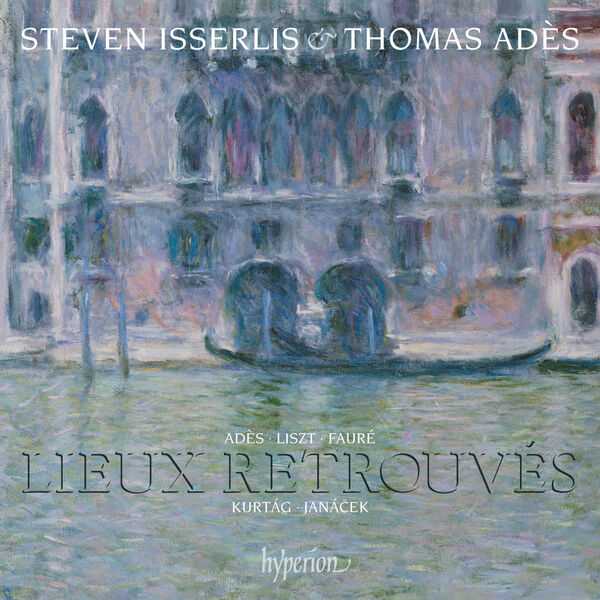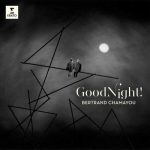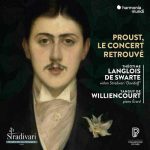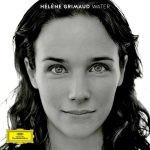

Composer: Thomas Adès, Gabriel Urbain Fauré, Leoš Janáček, György Kurtág, Ferencz Liszt
Performer: Steven Isserlis, Thomas Adès
Format: FLAC (tracks)
Label: Hyperion
Catalogue: CDA67948
Release: 2012
Size: 1.22 GB
Recovery: +3%
Scan: yes
01. Liszt: Romance oubliée, for viola / cello / violin & piano, S. 132
02. Liszt: Die Zelle in Nonnenwerth, S382
03. Liszt: La Lugubre Gondola for cello & piano, S134
Janáček: Pohádka (Fairy Tale) for Cello and Piano
04. I. Con moto
05. II. Con moto
06. III. Allegro
Fauré: Cello Sonata No. 2 in G minor, Op. 117
07. I. Allegro
08. II. Andante
09. III. Allegro vivo
10. Kurtág: For Steven – Im Memoriam Pauline Mara
11. Kurtág: Pilinszky János: Gérard de Nerval
12. Kurtág: Schatten
13. Kurtág: György Kroó in memoriam
Adès: Lieux retrouvés
14. I. Les eaux
15. II. La montagne
16. III. Les champs
17. IV. La ville: Cancan macabre
A cello recital with a difference from two maverick geniuses, displaying the fecundity of their collaboration. The world-famous cellist Steven Isserlis, one of the best-loved instrumentalists of today, joins forces with composer and pianist Thomas Adès, described by the New York Times as one of the most imposing figures in contemporary music.
This recording opens with three of Liszt’s arrangements for cello and piano—the dark plangency of Isserlis’s tone emphasizing their elegiac power. Janácek’s Pohádka (‘A Tale’) is based on a story with many magical elements, and it is this particular quality which Isserlis and Adès bring out in their aerial performance. The passionate ecstasy of Fauré’s Cello Sonata No 2 is deeply felt, and the elemental mysterious sadness of Kurtág’s miniatures leads the listener into the 21st century and to the ‘title track’ of this disc which Adès wrote for Isserlis himself. Lieux retrouvés is a characteristically thrilling tour de force, displaying influences from all the composers previously featured and many more. The writing for the cello reaches uncharted levels of difficulty. Isserlis in his thoughtful booklet notes describes it in pictorial terms of rivers and mountains—here’s Anthony Tommasini, again in the New York Times: ‘The rippling figures for piano and cello spin out in crazed, cyclic riffs; the crystalline piano harmonies sound as if the wind were rustling the chimes in the pagoda; the feisty, industrialized propulsive bursts in the finale.’
The coherence of the program on this release by the increasingly popular British cellist Steven Isserlis may not be evident at first glance, but it’s a nifty idea, and one with a weight that not so many contemporary composers can comfortably support. What Franz Liszt, Leos Janácek, Gabriel Fauré, and György Kurtág have in common is that they all influenced the last composer on the program, Thomas Adès. This gives you an idea of Adès’ eclecticism, which is brought into relief when you hear the strands of music that he likes. Those strands might broadly be characterized as minimal (to which category belong the three experimental pieces by Liszt, who proclaimed that he was going to “hurl his lance into the infinite sphere of the future,” and the evanescent solo cello pieces by Kurtág), lyrical (Fauré), and what one might call magical-psychological (Janacék). Put those together, especially with much of the music loosely related around themes of memory and nostalgia, and you have a pretty good summary of Adès’ Lieux retrouvés (Places Rediscovered). Adès throws in music from other sources as well, notably jazz, but his luxuriant yet inward style gains greatly in definition from this context, and his own accompaniment on piano shows his involvement (and betrays no technical stress). Isserlis himself seems a bit more comfortable with the edgier music than with Fauré, but his presentation here is a model for other performers wishing to incorporate contemporary music into solo recitals.



